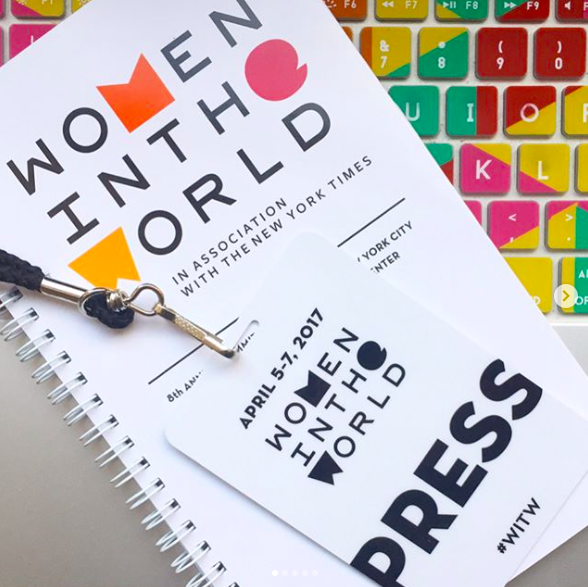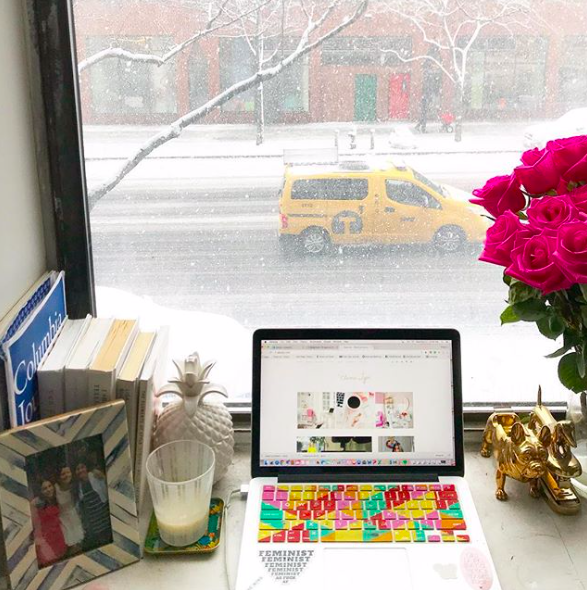When I left my full-time job to become a full-time freelance writer, my main concern was how to meet my income goals when I no longer had a check for a guaranteed amount every other week. I’ve written a bit about how I set my freelance writing rates and my strategy of having clients on retainer while pitching new publications and stories, but I’ve never covered how I set a budget as a freelance writer.
It’s difficult to set a budget as a freelancer when you don’t know the exact amount you’ll make each month. My income often fluctuates from month-to-month depending on the number of pitches I send in addition to the articles I write for clients. Some months are more profitable than others, so it’s crucial to budget responsibly and not go on a shopping spree because you had a good month…just to find out that the month is not as profitable as you hoped.
Here are some budgeting tips that have helped me budget as a freelancer.

Estimate your net income and expenses:
I track my income and business expenses in QuickBooks right away. QuickBooks makes it easy to find tax deductions and keep my finances organized by capturing receipts of business expenses, automatically tracking mileage, and categorizing my business expenses. (You can also link it to your business bank account to make it even easier!) I have the app on my phone so I can check it and add information on the go. Being diligent about bookkeeping is the best way to determine the average amount you make each month and each year.

Estimate your taxes so there are no surprises:
Keeping your bookkeeping organized and up-to-date will make your life 1,000% easier when you file your taxes. (No one wants to sift a huge stack of receipts and invoices right before taxes are due!) I love QuickBooks because it will factor in your income and expenses to find tax deductions and estimate your quarterly and annual taxes so you can budget accordingly. (There’s nothing worse than realizing you owe way more to the IRS than you had been banking on!)
When you work at a full-time job, your taxes are taken out of each paycheck and you don’t have to think about paying your taxes until everyone’s favorite season — tax season! As a freelancer, your taxes aren’t withheld automatically and you have to pay both annual and quarterly taxes. Your quarterly taxes will fluctuate based on your income for the quarter so I think it’s helpful to budget for more than what you paid in your most profitable quarter.

Create an emergency fund:
You never know when something unexpected is going to happen, so it’s always good to have some extra money saved. Most experts recommend that you have three to six months of expenses saved up that you don’t use unless you really, really, really need it. Try to put a certain amount of money into your emergency fund each month so it can grow and reassess each month or quarter to see if you can increase the amount.

Choose a budget and stick to it:
Now that you have a better idea of your net income and expenses, you can set up your budget as a freelancer. I like LearnVest’s 50/20/30 guideline. Spend 50% of your money on essential costs such as rent, utilities, and public transportation. Use 20% for payments or contributions that help you reach your financial goals like paying your student loans and credit card bills, adding to your emergency fund, contributing to your 401K, and saving for your goals like buying an apartment. Now the fun part: Budget the last 30% for things you like to do like shopping, travel, travel, going to restaurants, a gym membership, or even your favorite iced coffee that makes your mornings so much better!

Thank you to QuickBooks for sponsoring this post!































